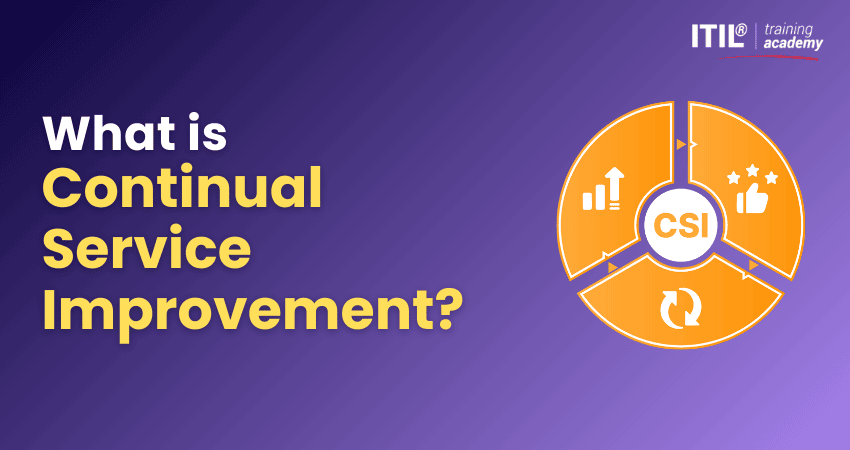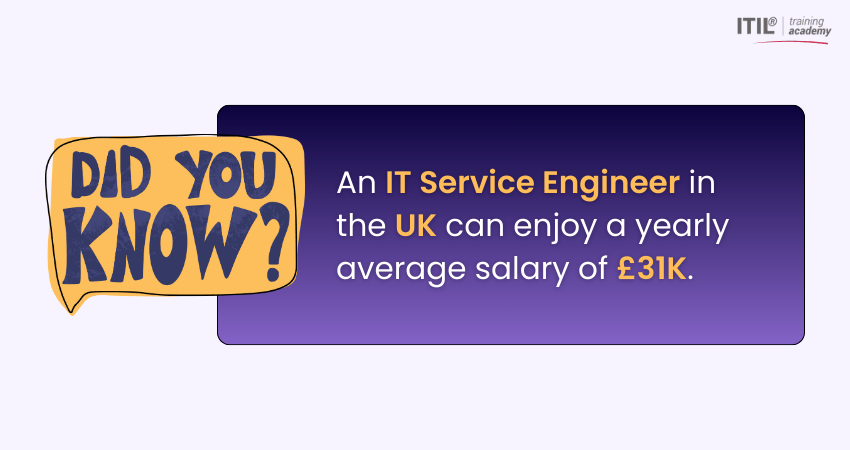
Author-Hailey Davis
Last updated-Aug 28, 2025
Feeling lost in the maze of ITIL® myths? You're not alone, and it's time to set the record straight. Too often, ITIL® is misunderstood as a rigid, bureaucratic system that stifles creativity and innovation. These misconceptions can prevent teams from tapping into ITIL®’s true potential as a flexible framework for supporting dynamic business needs.
Consider this blog your myth-busting toolkit. Here, we’ll dive into the 15 most common ITIL® Misconceptions, tackling everything from its supposed inflexibility to concerns about complexity and scope. So read on, rethink ITIL® and learn how this customisable ally can empower your team to deliver smarter, faster and more cost-effective IT Services!
Table of Contents
1) What is ITIL®?
2) Top ITIL® Misconceptions
a) Misconception 1: ITIL® Represents a Standard
b) Misconception 2: ITIL® is Designed Only for Large Organisations
c) Misconception 3: ITIL® 4 is Merely a Revision of ITIL® v3
d) Misconception 4: ITIL® Functions as a Project
e) Misconception 5: ITIL® is Incompatible With Other Practices
f) Misconception 6: ITIL® is Relevant Only to IT Departments
g) Misconception 7: ITIL® is for Internal use Only
h) Misconception 8: ITIL® 4 Certification is too Complex and Time-intensive
i) Misconception 9: ITIL® Serves as the Sole Solution to IT Service Management
j) Misconception 10: ITIL® Works the Same for Every Organisation
3) Conclusion
What is ITIL®?
Information Technology Infrastructure Library (ITIL®) is a well-known framework for managing IT Services. It offers best practices to help organisations match IT Services with business goals, improve service quality, and manage risks. It covers areas such as service strategy, design, transition, operation, and continuous improvement, helping to boost customer satisfaction, reduce costs and maintain consistent performance.
ITIL® 4 is the latest version. ITIL® 4 is more flexible and modern, incorporating DevOps, Lean and Agile. It focuses on creating value through collaboration and supports continuous improvement. It’s not a strict rulebook but a flexible guiding light that can be adapted to suit any organisation’s needs.
Top ITIL® Misconceptions
In IT Service Management (ITSM), the ITIL® has long served as a trusted framework. Yet, despite its popularity, many misunderstandings persist about its purpose, scope and use. This blog aims to dispel these ITIL® Misconceptions and clarify what ITIL® truly represents. Let's dive in:
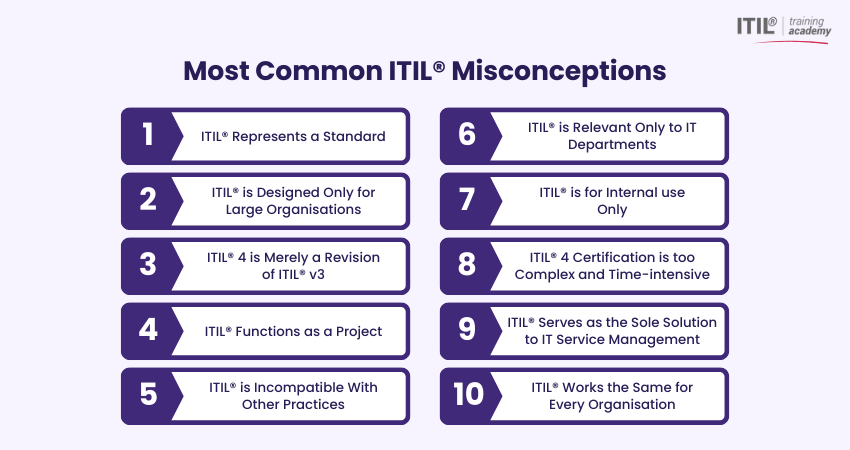
Misconception 1: ITIL® Represents a Standard
Many people think ITIL® is a strict set of rules, but it’s actually a flexible framework of best practices for managing IT Services. Its guidelines can be adapted to an organisation’s unique needs, challenges and goals. This adaptability makes ITIL® valuable across numerous industries and organisational contexts as it helps improve and develop service delivery over time.
Misconception 2: ITIL® is Designed Only for Large Organisations
One of the biggest ITIL® Misconceptions is that it is only suitable for large organisations. This belief often comes from three common concerns:
1) Looking at the five books in the ITIL® lifecycle suite, it seems like following every detail would create an overwhelming amount of bureaucracy.
2) There is a perception that adopting ITIL® is costly, with expenses for publications, training, and consultants. Some business cases even propose ITIL® implementations costing millions over several years to achieve top-level process maturity.
3) Since each ITIL® process has an associated role, some believe new jobs must be created for each one. This could mean hiring hundreds of people because the current staff are already focused on their daily work.
Misconception 3: ITIL® 4 is Merely a Revision of ITIL® v3
A common misconception is that ITIL® 4 is merely an update to ITIL® v3. While it builds on v3’s strong foundation, it is a major evolution. ITIL® 4 adds new ideas like the Service Value System (SVS) and the Four Dimensions Model, offering a more complete approach to Service Management. These features align ITSM even more closely with modern practices such as Agile, DevOps and Lean.
Misconception 4: ITIL® Functions as a Project
ITIL® is an ongoing journey to improve Service Management quality, not a one-time project with clear start and end dates. It follows a cyclical, evolving approach which ensures that services are regularly updated to meet changing needs. This keeps organisations agile, responsive and committed to innovation and excellence in service delivery.
Misconception 5: ITIL® is Incompatible with Other Practices
Some believe ITIL® is becoming less relevant, blaming the rise of Cloud, Agile, DevOps, or other approaches that seem different from how ITIL® was used in the past. This view often comes with the search for a single framework or method that solves all problems without major changes or outside input.
Organisations taking this “one or none” approach often launch big initiatives every few years. Over time, this creates resistance to change, with senior staff dismissing each new initiative as just another passing trend.
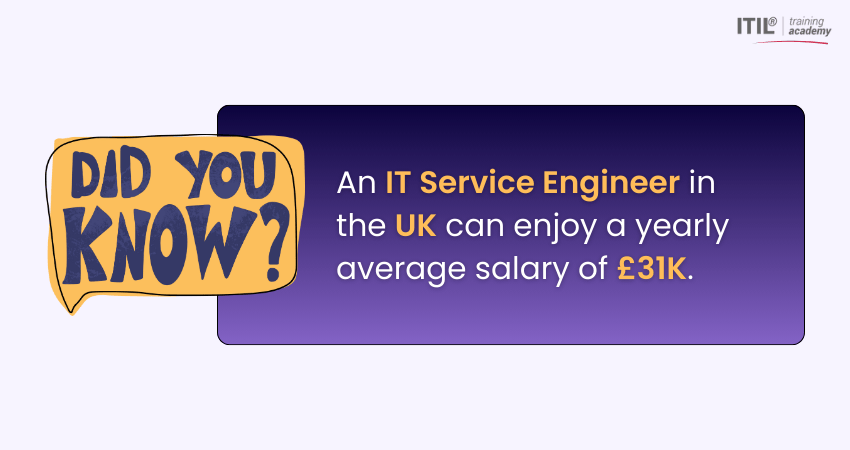
Misconception 6: ITIL® is Relevant Only to IT Departments
Although ITIL® was initially created for IT, its principles can be applied to many other sectors and functions. They help improve efficiency and effectiveness across an organisation. It focuses on service-oriented best practices that are relevant to a range of industries and business areas.
Move beyond mere protection and embrace Agile service delivery empowerment. Sign up for our ITIL® 4 Practice Manager (PM) Training now!
Misconception 7: ITIL® is for Internal use Only
The ITIL® framework is designed for IT Services, but its principles can also be applied to external service providers. Using ITIL® in remote operations helps companies focus on innovation by streamlining processes, improving communication and building stronger relationships with customers and partners. This holistic approach enables organisations to meet diverse stakeholder expectations and boost operational excellence.
Misconception 8: ITIL® 4 Certification is too Complex and Time-intensive
Some people think earning an ITIL® 4 certification is difficult and time-consuming. While it does require commitment and study, it’s not overly hard to achieve. The ITIL® 4 courses offer a clear gateway, even for those new to IT Service Management. With proper training and resources, candidates can pass the exam and gain skills that benefit both their careers and their organisations.
Misconception 9: ITIL® Serves as the Sole Solution to IT Service Management
While ITIL® offers a solid foundation for IT Service Management, it is not the only available approach. It can easily work alongside methods like Agile, DevOps or Lean, depending on a company’s goals and working style. By integrating with these practices, ITIL® becomes a flexible and innovative framework that upholds agility and drives continuous improvement in business processes.
Misconception 10: ITIL® Works the Same for Every Organisation
While the ITIL® 4 guiding principles benefit organisations of all sizes, how they are applied depends on each organisation’s unique needs, resources and goals. Smaller businesses may adopt a simplified approach, while larger ones may implement ITIL® more fully to gain maximum value. This flexibility allows organisations to tailor ITIL® to align with their priorities, ensuring that ITSM practices effectively support their business objectives.
Misconception 11: Every ITIL® Procedure is a Part of an ITIL® Lifecycle
Although ITIL® is based on five stages in the Service Lifecycle, not every process or practice fits neatly into them. Its flexibility allows the principles to adapt to different situations. Organisations must focus on their own needs and goals rather than strictly following the lifecycle. This will help ensure that ITIL® aligns with their specific challenges and priorities.
Misconception 12: ITIL® is Only Concerned with Tools
While technology plays a vital role in ITIL®’s success, the human factor is even more critical. The skills and commitment of an organisation’s people drive effective implementation and deliver the expected benefits. Supporting staff in adapting to the cultural changes ITIL® brings can make the process smoother. The right tools also matter for improving performance and ensuring quality, so it’s important to choose ones that best match your goals.
Misconception 13: ITIL® is all About Processes and Nothing Else
While processes are essential in ITIL®, its scope is wider, covering people, technology and alignment with business goals. ITIL® focuses on balancing process efficiency, technological innovation and human factors. Success comes from making these three work together, improving both service delivery and overall operations.
Respond, recover and restore services with precision. Our ITIL® 4 Practitioner: Incident Management Training will show you how - Sign up now!
Misconception 14: ITIL® can be Implemented Without Professional Help
Some believe ITIL® can be adopted without expert help, but in reality, guidance from a qualified ITIL® professional is key to using the framework effectively. An expert can clear up your doubts, make sure the processes match business needs, and prevent misconceptions from slowing implementation. Businesses can also invest in ITIL® 4 training for their staff because well-trained teams with strong documentation can apply ITIL® principles more smoothly and effectively.
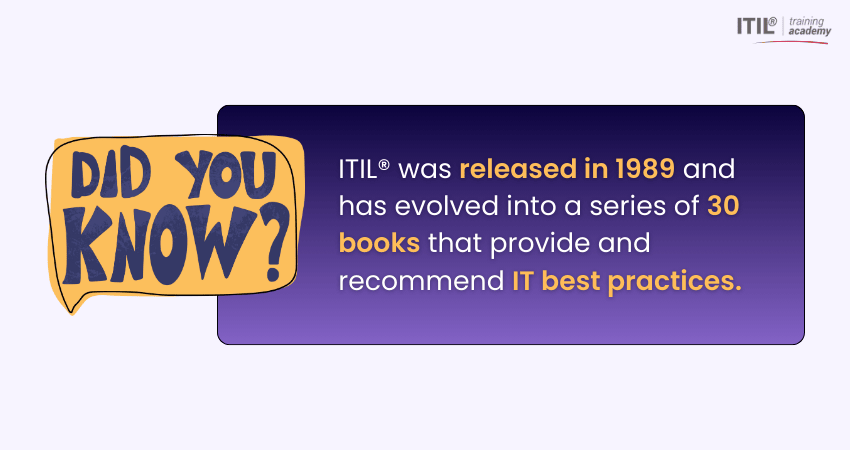
Misconception 15: Small Businesses don't Benefit From ITIL®
Many people think ITIL® principles are only for large enterprises, but that’s not true. They are scalable and flexible, making them suitable for both big and small businesses. Small and Midsize Enterprises (SMEs) can adapt ITIL® to fit their resources and priorities thus improving service delivery, efficiency and customer satisfaction. By adopting ITIL® concepts, organisations of any size can strengthen their IT Service Management and set themselves up for success.
Conclusion
Understanding the truth behind common ITIL® Misconceptions can help your organisation use it more effectively. After all, ITIL® is a flexible, adaptable framework that supports continuous improvement, not a rigid set of rules. By applying it with the right mindset, resources and expert guidance, businesses of any size can turbocharge service delivery and achieve long-term success.
Craft the best blueprints for IT brilliance with our ITIL® 4 Specialist: Plan, Implement and Control Training - Register now!
Frequently Asked Questions?
No FAQs available for this blog.
Most Recent
Date - Feb 24, 2026
Date - Feb 23, 2026
Date - Feb 23, 2026





 Back to
Topics
Back to
Topics





















